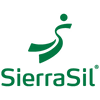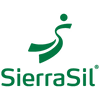News
What did your January 2020 look like? Big expectations, New Year's resolutions in place? Eager for what lay ahead and what you would make happen that year? At the risk of stating the obvious, what a strange year it turned...
Continue reading
Did you notice that holiday and Christmas decorations came early this year? It's not all that surprising, given that opportunities for joy have become even more important throughout this pandemic. My wife and I usually have enough restraint not to untangle the outdoor lights until after US Thanksgiving. Yet there we were, on the afternoon of Remembrance Day (US Veterans Day), joining a trend that hit the news before November was done - people getting their Christmas lights up early. So in the spirit of stringing things together, I hope you'll be encouraged and brightened by the following connections as I string some thoughts together!
Continue reading
For most of us in Canada, the weather is either already quite frightful or it’s getting there. It's the shorter days and chilly drafts that making curling up and warming our bones by the fire such a pleasure. Better yet...
Continue reading
For most of us in Canada, the weather is either already quite frightful or it’s getting there. It's the shorter days and chilly drafts that making curling up and warming our bones by the fire such a pleasure. Better yet...
Continue reading
Almost every notable invention (and now such a regular part of our daily lives), from figuring out how to create fire to modern-day self-driving cars are the direct result of curiosity. The desire to seek out new information and adventures is a very prevalent human characteristic.
Continue reading



